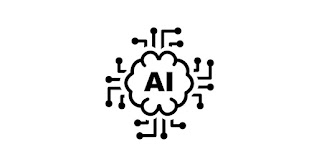Que- The symbols used in describing the syntax of a programming language are
a. 0
b. {}
c. " "
d. <>
Ans- <>
Que- Ambiguity may be caused by:
a. syntactic ambiguity
b. multiple word meanings
c. unclear antecedents
d. all of the mentioned
Ans- all of the mentioned
Que- Which company offers the LISP machine considered "the most powerful symbolic processor available"?
a. LMI
b. Symbolics
c. Xerox
d. Texas Instruments
Ans- Symbolics
Que- What of the following is considered a pivotal event in the history of Artificial Intelligence?
a. 1949, Donald O, The organization of Behavior
b. 1950, Computing Machinery and Intelligence
c. 1956, Dartmouth University Conference Organized by John McCarthy
d. 1961, Computer and Computer Sense
Ans- 1956, Dartmouth University Conference Organized by John McCarthy
Que- Natural language processing is divided into the two subfields of:
a. symbolic and numeric
b. time and motion
c. algorithmic and heuristic
d. understanding and generation
Ans- algorithmic and heuristic
Que- High-resolution, bit-mapped displays are useful for displaying:
a. clearer characters
b. graphics
c. more characters
d. all of the mentioned
Ans- more characters
Que- A bidirectional feedback loop links computer modeling with:
a. artificial science
b. heuristic processing
c. human intelligence
d. cognitive science
Ans- human intelligence
Que- Which of the following have people traditionally done better than computers?
a. recognizing relative importance
b. finding similarities
c. resolving ambiguity
d. all of the mentioned
Ans- resolving ambiguity
Que- In LISP, the function evaluates both and is
a. set
b. setq
c. add
d. eva
Ans- set
Que- Which type of actuator generates a good deal of power but tends to be messy?
a. electric
b. hydraulic
c. pneumatic
d. both hydraulic & pneumatic
Ans- hydraulic
Que- Research scientists all over the world are taking steps towards building computers with circuits patterned after the complex interconnections existing among the human brain's nerve cells. What name is given to such type of computers?
a. Intelligent computers
b. Supercomputers
c. Neural network computers
d. Smart computers
Ans- Neural network computers
Que- The integrated circuit was invented by Jack Kilby of:
a. MIT
b. Texas Instruments
c. Xerox
d. All of the mentioned
Ans- Texas Instruments
Que- People overcome natural language problems by:
a. grouping attributes into frames
b. understanding ideas in context
c. identifying with familiar situations
d. both understanding ideas in context & identifying with familiar situations
Ans- both understanding ideas in context & identifying with familiar situations
Que- The Cedar, BBN Butterfly, Cosmic Cube and Hypercube machine can be characterized as
a. SISD
b. MIMD
c. SIMD
d. MISD
Ans- MIMD
Que- A series of AI systems, developed by Pat Langley to explore the role of heuristics in scientific discovery is ________
a. RAMD
b. BACON
c. MIT
d. DU
Ans- BACON
Que- Nils Nilsson headed a team at SRI that created a mobile robot named:
a. Robotics
b. Dedalus
c. Shakey
d. Vax
Ans- Shakey
Que- An Artificial Intelligence technique that allows computers to understand associations and relationships between objects and events is called:
a. heuristic processing
b. cognitive science
c. relative symbolism
d. pattern matching
Ans- relative symbolism
Que- The new organization established to implement the Fifth Generation Project is called:
a. ICOT (Institute for New Generation Computer Technology)
b. MITI (Ministry of International Trade and Industry)
c. MCC (Microelectronics and Computer Technology Corporation)
d. SCP (Strategic Computing Program)
Ans- ICOT (Institute for New Generation Computer Technology)
Que- The field that investigates the mechanics of human intelligence is:
a. history
b. cognitive science
c. psychology
d. sociology
Ans- cognitive science
Que- What is the name of the computer program that simulates the thought processes of human beings?
a. Human logic
b. Expert reason
c. Expert system
d. Personal information
Ans- Expert system
Que- What is the name of the computer program that contains the distilled knowledge of an expert?
a. Database management system
b. Management information System
c. Expert system
d. Artificial intelligence
Ans- Expert system
Que- Claude Shannon described the operation of electronic switching circuits with a system of mathematical logic called:
a. LISP
b. XLISP
c. Neural networking
d. Boolean algebra
Ans- Neural networking
Que- A computer program that contains expertise in a particular domain is called an:
a. intelligent planner
b. automatic processor
c. expert system
d. operational symbolizer
Ans- expert system
Que- What is the term used for describing the judgmental or commonsense part of problem solving?
a. Heuristic
b. Critical
c. Value based
d. Analytical
Ans- Heuristic
Que- What was originally called the "imitation game" by its creator?
a. The Turing Test
b. LISP
c. The Logic Theorist
d. Cybernetics
Ans- The Turing Test
Que- Decision support programs are designed to help managers make:
a. budget projections
b. visual presentations
c. business decisions
d. vacation schedules
Ans- business decisions
Que- Programming a robot by physically moving it through the trajectory you want it to follow is called:
a. contact sensing control
b. continuous-path control
c. robot vision control
d. pick-and-place control
Ans- continuous-path control
Que- The primary interactive method of communication used by humans is:
a. reading
b. writing
c. speaking
d. all of the mentioned
Ans- speaking
Que- Elementary linguistic units which are smaller than words are:
a. allophones
b. phonemes
c. syllables
d. all of the mentioned
Ans- all of the mentioned

